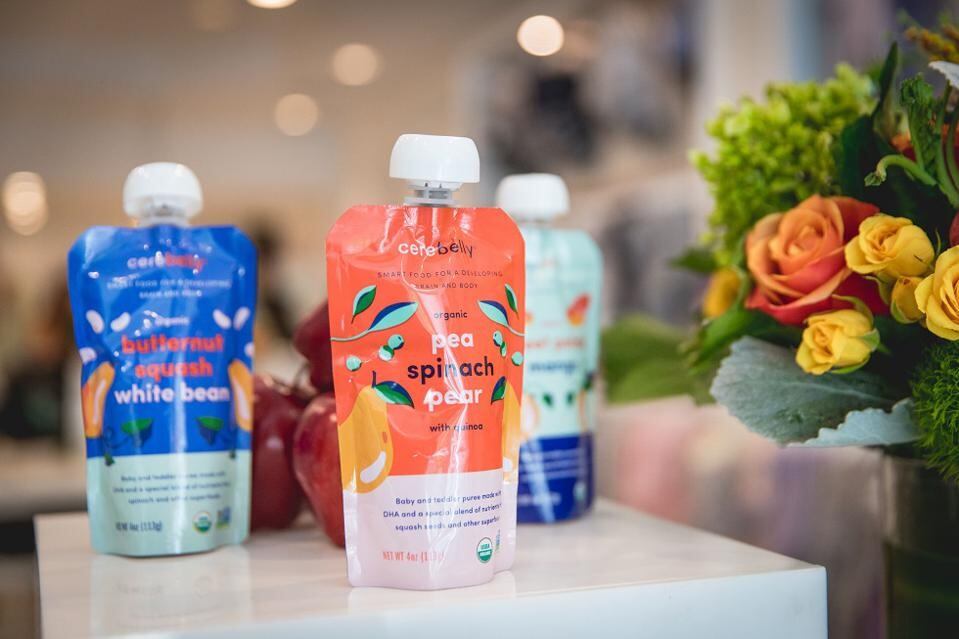Since the report was published on February 4, Gerber, Beech Nut Nutrition, Campbell Soup (Plum Organics), Nurture Inc (Happy Family Organics) and Hain Celestial (Earth’s Best) have all been hit with lawsuits alleging consumer fraud, while New York attorney general Letitia James has written to the FDA urging it to set limits for toxic metals across all baby foods.
FDA: Heavy metals ‘cannot be completely avoided’
In a statement released Tuesday, the FDA explained that heavy metals such as lead and arsenic “are present in the environment and may enter the food supply through soil, water or air” and therefore “cannot be completely avoided in the fruits, vegetables, or grains that are the basis for baby foods, juices, and infant cereals made by companies or by consumers who make their own foods [the latter is an important point as some consumers have responded to the recent headlines by assuming making their own baby food will resolve the issue].”
They also “cannot be completely avoided by using organic farming practices,” added the agency. “Our goal is to reduce exposure to toxic elements in foods to the greatest extent feasible and to further advance progress in this area through more research and enhanced collaboration among stakeholders.”
Reiterating comments made to reporters when the report first came out, the FDA explained that FDA scientists “routinely monitor levels of toxic elements in baby foods, along with other foods consumed in the country’s diet, through the Total Diet Study, the compliance program for Toxic Elements in Food and Foodware, and Radionuclides in Food and through targeted sampling assignments.”
For example, FDA sampling of infant rice cereal since 2011 has shown that manufacturers have made significant progress in reducing arsenic in infant rice cereal products (for which the FDA has set an upper limit of 100ppb in recent guidance) through selective sourcing and testing of rice and rice-derived ingredients such as rice flour, noted the agency.
Guidance on heavy metals in food
However, it did not say whether it agreed with the characterization of the levels of heavy metals allegedly in some of the baby foods cited in the congressional report as “highly dangerous,” or say what levels of mercury, lead, or cadmium it considers to be too high in baby food, making it challenging for firms facing lawsuits as there is no federal 'safe harbor' level to point to specific to baby food (with the exception of the guidance on inorganic arsenic in infant rice cereal).
The FDA has set maximum allowable levels in bottled water at 10 ppb inorganic arsenic, 5 ppb lead, and 5 ppb cadmium, while the EPA has capped the allowable level of mercury in drinking water at 2 ppb.
The FDA has also set limits on lead in juice [50ppb lead], and candy [0.1ppm lead], and has proposed a 100ppb limit on inorganic arsenic in infant rice cereals. There are as yet no federally mandated upper limits for lead, mercury and cadmium in baby foods, however.
So where does this leave food manufacturers?
While setting thresholds/upper limits in and of itself does not reduce exposure, it does tend to galvanize stakeholders, acknowledged Tom Neltner, chemicals policy director at the nonprofit Environmental Defense Fund, which has been working with The Baby Food Council – launched in 2019 by Beech-Nut Nutrition, Hain Celestial Group (Earth’s Best), Gerber, and Danone (Happy Family Organics) – and Foodchain ID to establish a Baby Food Standard and Certification Program.
“I do see the value in numbers, because then you have something to point to, but the question is how do we drive down levels to as low as possible rather than saying this number is safe, because it probably isn’t.
“Upper levels for water [which plaintiff’s attorneys are pointing to in lawsuits for example] are relevant but not directly relevant to food, and water is also easier to measure than a cracker,” he added.
Testing protocols for heavy metals in babyfood
Accurate testing is also critical, he said: “A couple of years ago we had a firm do a proficiency test on purees [containing varying levels of lead] and we went to 28 labs and half of them failed the proficiency tests for levels of 5-10ppb, so a lot of companies may go to a lab and sometimes they don’t spec a good method, and you’ll get a non-detect if it’s less than 100pb, which is not acceptable.”
Ultimately, he said, “farmers and the USDA have a role here, not just the FDA. We know more about best practices for rice on inorganic arsenic [both in terms of sourcing, but also consumer practices such as rinsing and altering water cooking volume that can affect the level of inorganic arsenic ingested], but what about squash, sweet potatoes, and carrots? And in some cases if we can’t get the levels down, should we use different ingredients?”
As for the takeaway for parents, he said, “Simply advising parents to make food from fresh fruits and vegetables or buy processed foods not marketed as baby food is insufficient. Further, it may be counterproductive since these alternatives are not systematically tested and screened for heavy metals.”
More lawsuits...
The FDA’s comments came as fresh lawsuits were filed against Campbell Soup (Plum Organics*) and Nurture Inc (Happy Family Organics**) alleging consumer fraud and deceptive labeling.
The complaints cite data from the subcommittee report alleging that 25% of the Happy Family Organics products tested contained over 100ppb inorganic arsenic, while almost 20% contained over 10 ppb lead; 65% of tested products contained more than 5 ppb cadmium; while some products contained up to 10ppb mercury.
A spokesperson for Nurture, Inc said the test results referenced in the report were "not representative generally of our entire range of products at-shelf today," adding that it was "disappointed at the many inaccuracies, select data usage and tone bias in this report."
The company “stands by the quality and safety of all of its products and is proud to have best-in-class testing protocols in our industry," added a spokesperson. "While we do not comment on pending litigation, we intend to vigorously defend this case.”
According to the complaint vs Campbell Soup (the second lawsuit filed against the company this month over heavy metals), the Congressional report data showed that one Plum Organics product contained 39ppb inorganic arsenic, although the others all tested negative; lead levels ranged from 1-6ppb; mercury from 0.1-0.7ppb; and cadmium from 0.5-24.3ppb.
A Campbell Soup spokesperson told FoodNavigator-USA that it intended to defend the case vigorously: “Campbell is confident in the safety and quality of our products. The company does not comment on pending litigation, but we do intend to defend this case vigorously.”
Responding to allegations in the report (which are then referenced in the lawsuits) that, “Campbell provided a spreadsheet self-declaring that every one of its products meets criteria’ but declined to state what those criteria are," a spokeswoman told us earlier this month that Campbell tested all of its products “to ensure none exceed acceptable levels of arsenic, lead, cadmium, or mercury,” although it did not say what these levels were given the lack of specific FDA guidance on baby food.
According to the spokesperson: “Campbell used standards from California’s Proposition 65, the EU and the WHO, along with general guidance from the FDA on lead not specific to baby foods—to develop a testing protocol for evaluating whether heavy metals in Plum Organics’ products exceeded levels that independent authorities had determined to be acceptable.”
As to procurement strategies for high-risk ingredients, she said: "This issue has been and continues to be on the radar of our procurement team. We also share our quality requirements and guidelines for heavy metals with our external partners, including our contract manufacturers."
Attorney: Cases reflect 'halo theory' in food litigation
Attorneys contacted by FoodNavigator-USA said such lawsuits deploy a kind of ‘halo theory’ increasingly featuring in proposed class actions in which plaintiffs claim that reasonable consumers (in this case, parents of babies/young children) would not expect to see any level of contaminants, pesticide residues, heavy metals and so on in foods that present themselves as healthy and nutritious.
And in the absence of safe harbor levels for most heavy metals specific to baby food, plaintiff’s attorneys will likely continue to file such complaints given that “there isn’t a specific threshold you can point to and claim protection,” said one legal source.
Companies can reduce their legal vulnerability by setting up rigorous internal protocols and compliance systems, but after reports like this, food manufacturers will likely be lobbying state and federal agencies to set safe harbor levels, he predicted.
*The case is Smid v Campbell Soup Company, and Plum PBC, 1:21-cv-02417 filed in New Jersey, February 11, 2021.
**The case is Soto v Nurture Inc, 1:21-cv-01271 filed in New York February 11, 2021.
Further reading:
- Baby food brands defend protocols as congressional report alleges ‘highly dangerous’ levels of heavy metals in infant foods; expect lawsuits, says attorney
- Heavy metals in baby food: How should the food industry respond?
- ‘The agency has failed to adequately regulate baby food…’ NY attorney general urges FDA to set standards for heavy metals
- And now the lawsuits… Plum, Gerber, Beech-Nut, Hain, hit with class actions in wake of report on heavy metals in baby food




